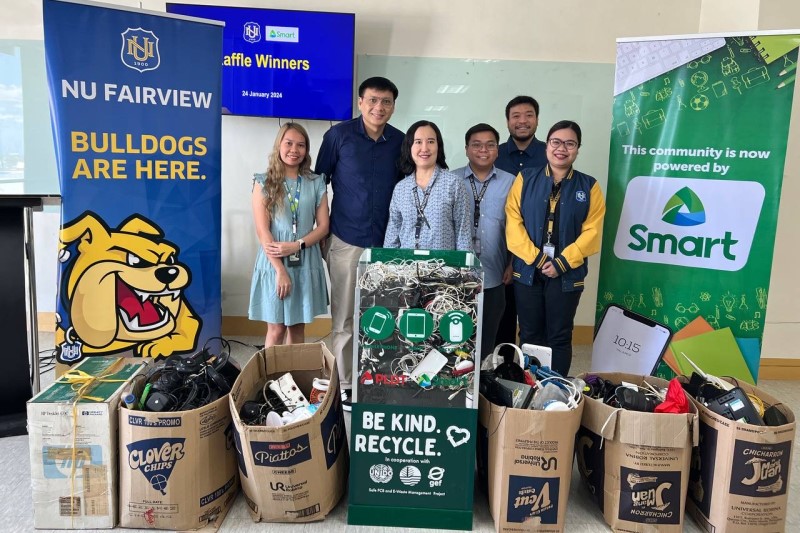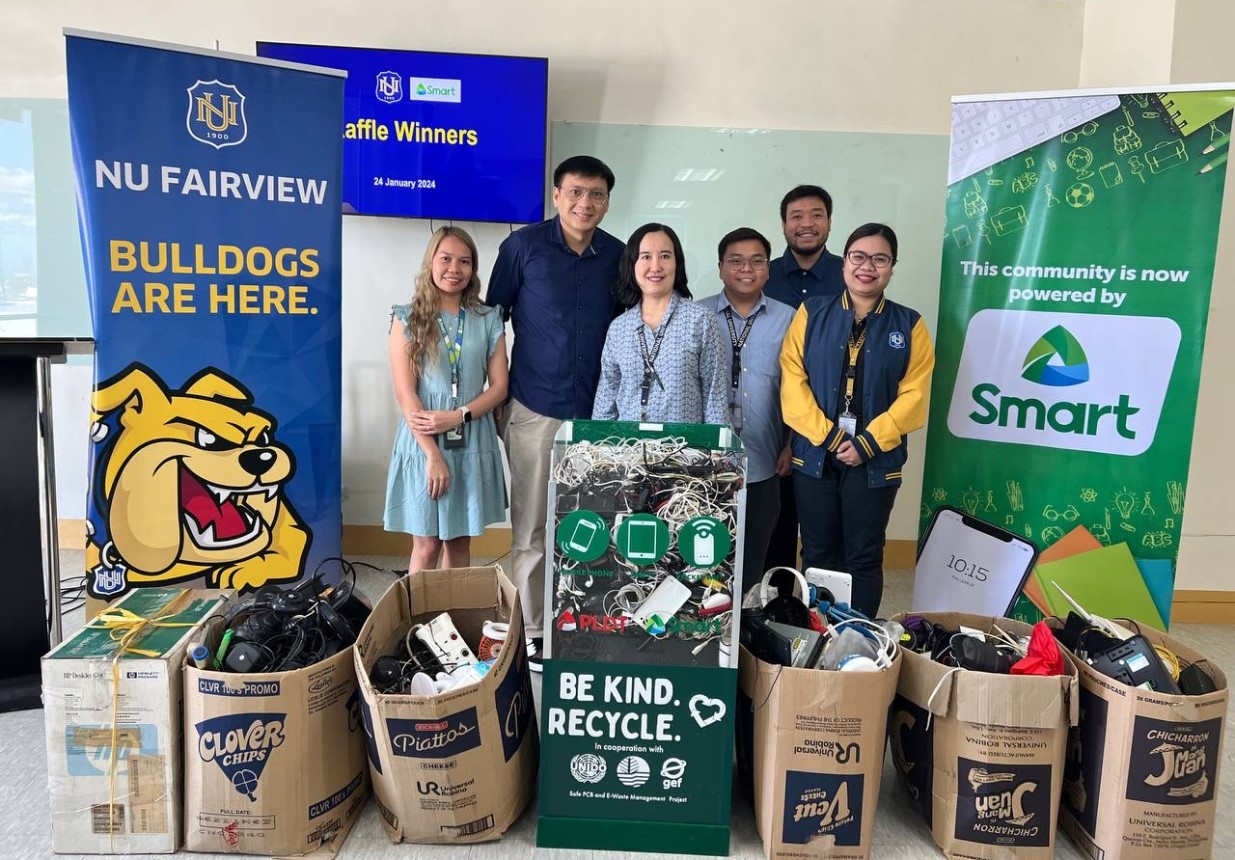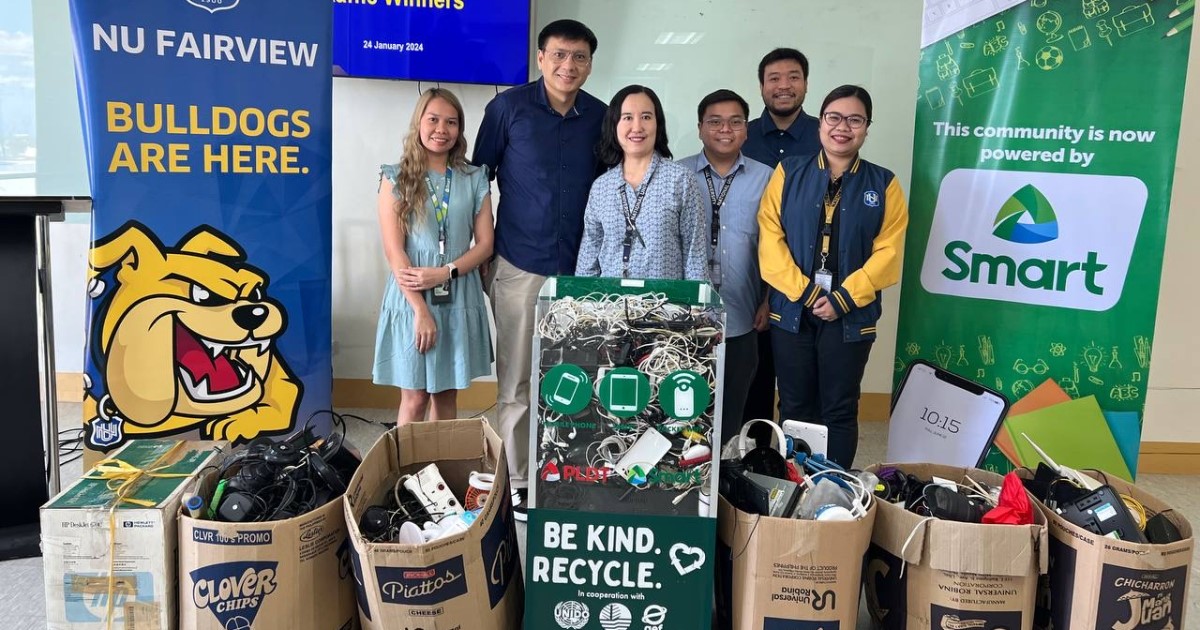
In support of the circular economy, the Philippines’ leading integrated telco network PLDT Inc. (PLDT) and its wireless unit Smart Communications, Inc. (Smart) are working with various colleges and universities to expand electronic waste (e-waste) collections and promote responsible consumption among students and academic communities.
E-waste includes discarded and obsolete communication devices and gadgets with electronic plugs and batteries. Considered as among the world’s fastest growing household waste stream, the United Nations Environment Programme earlier reported that only 20% of global e-waste is properly recycled.
“Through our ‘Be Kind. Recycle.’ program, we are working with like-minded schools to raise awareness on the importance of e-waste recycling and provide students with a convenient and accessible means to properly dispose of their e-waste and support the circular economy. We believe in the ability of our Filipino youth to effect positive change in their communities, and we share in their passion to protect the planet for the future generations,” said Jacqueline N. Bocalan, VP and Head of Channel Management at Smart.
To date, PLDT and Smart have activated e-waste collections in 13 schools, namely University of the Philippines Los Baños, Systems Plus College Foundation in Pampanga, University of Rizal System in Morong and Tanay, Arellano University’s seven campuses (Main, Jose Abad, Mabini, Plaridel, Pasig, Elisa Esguerra, and Jose Rizal), and Pasig Catholic College. They are set to deploy more in 11 campuses of the National University across Central and South Luzon, Metro Manila, and Bacolod, plus the Department of Science and Technology in Region IV-A (CALABARZON) among other sites in the remainder of 2024 until next year.
Students, faculty, and staff, as well as visitors can drop off their e-waste in PLDT and Smart e-waste collection bins located within partner schools and campuses. Accepted e-waste items include old and broken telephones, routers, mobile phones, tablets, laptops, chargers, cords, batteries, power banks, USBs, among others.

In addition to having e-waste collections in schools, the general public can also drop off their e-waste in select PLDT and Smart stores and experience hubs, or in Cyberzone areas of all SM Malls nationwide.
E-waste collected are brought to accredited e-waste treatment, storage, and disposal facilities. These facilities are operated by skilled workers and equipped with proper tools to harvest valuable components for recycling and dispose of hazardous components in e-waste. Such process generates recycled plastics, metals, and other components that can be used as raw materials to produce new electronics and devices.
Through these collaborations and initiatives, PLDT and Smart continue to support the country’s transition to a Circular Economy. As a key component of the Philippines’ Nationally Determined Contribution to the Paris Agreement on Climate Change, the circular economy is aimed at reducing waste and greenhouse gas emissions through the adoption of sustainable modes of production and consumption.
“We believe that the circular economy will contribute not only towards addressing the ongoing triple planetary crisis on climate change, pollution, and biodiversity loss, but will also unlock opportunities for innovation, economic growth, and value creation across sectors. In particular, we would like to work closely with the youth and academe as they can be our force multipliers in creating awareness and mobilizing for action to help preserve the planet for them and for future generations,” said PLDT and Smart First Vice President and Chief Sustainability Officer Melissa Vergel de Dios.
These initiatives align with PLDT and Smart’s continuing support to the Philippine government as it fulfills commitments to the Paris Agreement and contributes to the United Nations Sustainable Development Goals (UN SDGs), particularly UN SDG 9 on Industry, Innovation, and Infrastructure, and UN SDG 12 on Responsible Consumption and Production.


